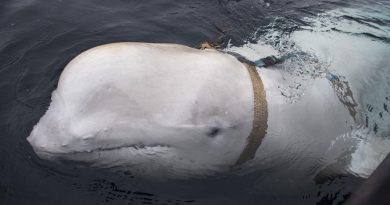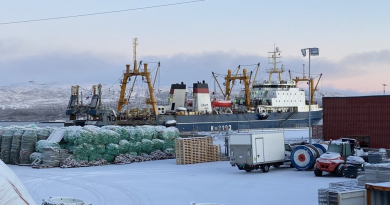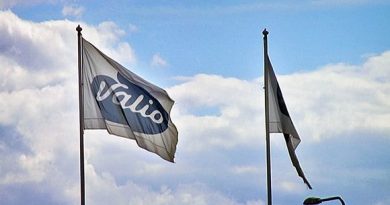Meet the five experts who just received the British Polar Medal
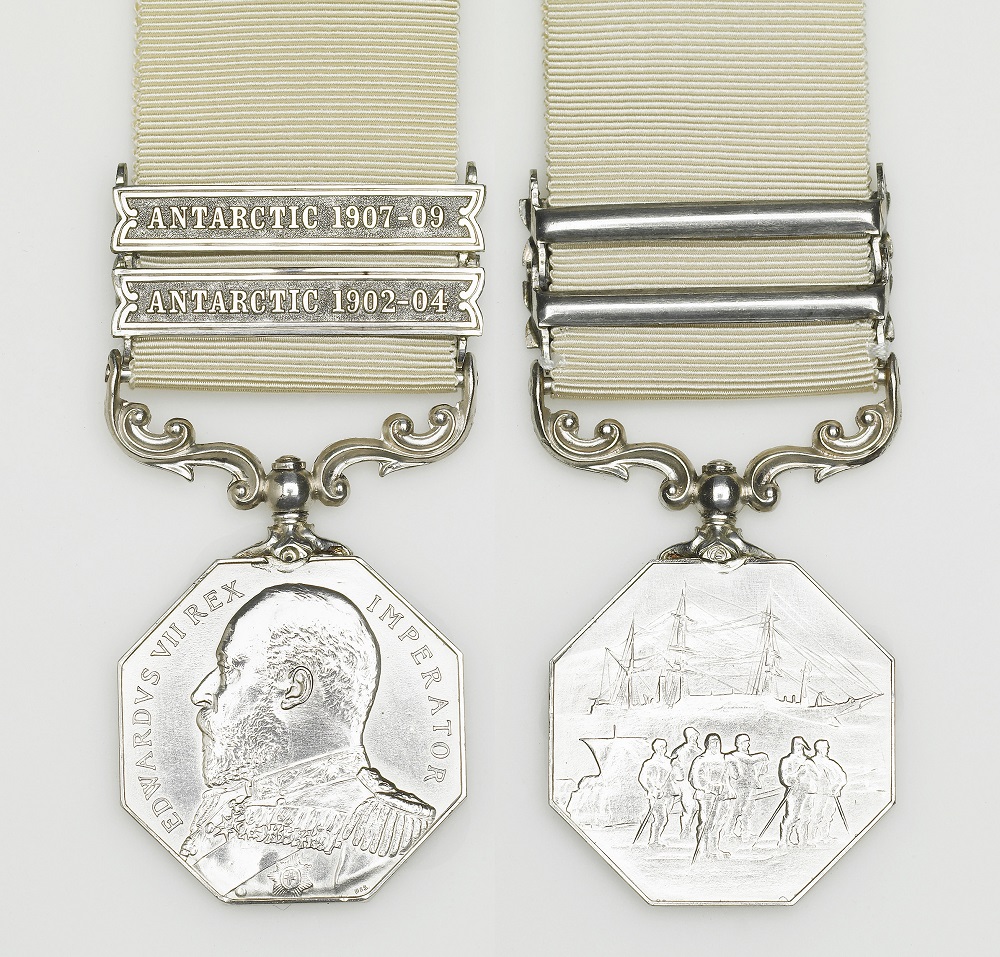
Four scientists and an Operations Director were recently awarded the Polar Medal by Queen Elizabeth, according to The Gazette, the UK’s official public record.
The Polar Medal is awarded by the Queen to persons who have made outstanding personal contributions to the understanding of the Polar regions or who have rendered prolonged and outstanding services to the acquisition of such knowledge.
Among the five recipients, three are members or former members of the British Antarctic Survey (BAS).
Melody Clark is a molecular scientist at BAS. Her research focuses on the genetics of Antarctic marine animals, and how they adapt to the extreme cold and may react in the face of predicted climate change. She received the medal for her work in Antarctica and the Arctic.
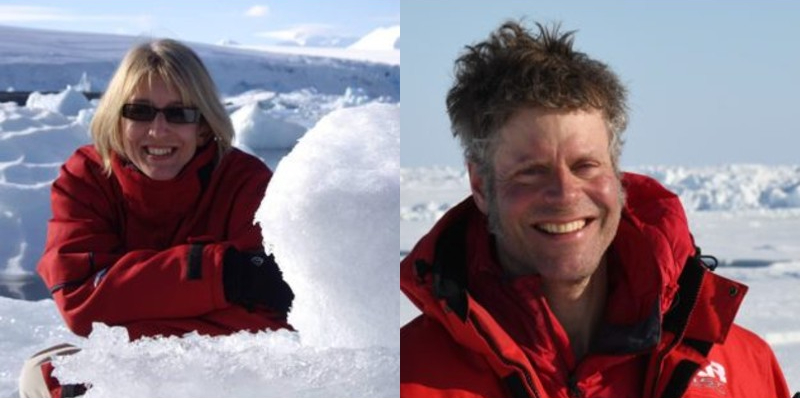
Markus Frey is an Atmospheric and Glacio-chemist. He was recently involved in the MOSAiC expedition, which was the largest scientific expedition to date into the central Arctic to explore year-round the Arctic environment and climate system. Frey also received the medal for his work in Antarctica and the Arctic.
John Eager is not a scientist but his contribution has greatly facilitated research in the polar regions. He had a successful and varied career at BAS, which involved working as a Chef, Halley Station Leader and, most recently, as Head of Polar Operations. John left BAS in 2021 and is now in charge of the FAAM atmospheric science aircraft for the NERC National Centre of Atmospheric Research.
The award recognizes Eager’s outstanding and sustained leadership in the UK’s Antarctic program during his years of service as Head of Polar Operations at the British Antarctic Survey.
“To receive a Polar Medal is a huge honour and certainly one I never expected. It has been a privilege to support the planning, logistics and delivery of research in Antarctica” said Eager in an interview with his new employer, NERC.

Ian Brooks, Professor of Boundary Layer Processes at the University of Leeds, has also been awarded the Polar Medal.
“It is a great and unexpected honour to be awarded the Polar Medal. It feels a little odd to receive a personal honour like this for what is inherently a collaborative endeavour – polar science can’t be carried out alone”, said Brooks in an interview with the University of Leeds.
“My reason for going to the poles is the science – to try and understand the processes controlling polar climate, and the accelerating changes taking place there. It’s a privilege to get to spend time in such beautiful, fragile places.”

Brooks has extensive experience in marine expeditions in the Polar regions and brings particular expertise in the technical aspects of atmospheric science instrumentation. He has been awarded for his work in both the Antarctic and Arctic.
Finally, the last recipient was Professor David Thomas, honorary professor in the School of Ocean Sciences at Bangor University in Wales.
“This award is a recognition of David’s research and leadership in both the Arctic and Antarctic, in which he has done much to enhance understanding about the ecology and chemistry of the frozen realms of floating sea ice that dominate both the Antarctic and Arctic Oceans”, writes the university.
In recent years, Thomas has helped lead two major UK research programmes for the Natural Environment Research Council (NERC). He now continues his Arctic research as the Professor of Arctic Ecosystems Research at the University of Helsinki.
This latest award follows that in 2020 by The Government of the British Antarctic Territory who named an Antarctic glacier, Thomas Glacier (Palmer Land, Antarctic Peninsula), in recognition of the Antarctic aspects of his work.
All five laureates join an illustrious list of Polar Medal recipients that includes Captain Robert F Scott, Sir Ernest Shackleton, Sir Edmund Hillary, Sir Vivian Fuchs and also Professor Dame Jane Francis.
The Polar Medal
The first polar award was called the Arctic Medal, which was presented twice in the 19th century. First, to the men who engaged in a search expedition to discover the fate of Sir John Franklin and his crew who were lost while looking for the Northwest Passage in 1847. The second was to the crews of three ships exploring the Arctic in 1875-76.
In 1904, the Polar Medal was inaugurated for members of Captain Scott’s first expedition to Antarctica. Subsequent medals were awarded to members of Ernest Shackleton’s expeditions in 1907-09 and 1914-17.
Initially, a minimum period of service of 12 months was required to be awarded the medal and the Polar Medal was presented to anyone who participated in a polar expedition endorsed by the governments of any Commonwealth realms.
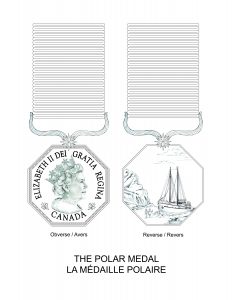
However, since 1968, a greater emphasis has been placed on individual service, and since 1998: “Service in the support of the acquisition of knowledge of Polar regions shall normally be at least ten years’ such service in order to be considered for the Medal, although, in exceptional cases, a shorter period of outstanding service may be considered”, reads The Gazette.
In recent decades most awards have been made to people who – over prolonged periods of time and often in harsh conditions – have worked to advance knowledge of the polar regions.
In Canada, although many citizens have received this medal, it was not included in the Canadian Honours System that was enacted in 1967.
It was only in 2005 that a Canadian award to honour explorers of Canada’s polar regions and defenders of the country’s sovereignty in the North appeared: the Governor General’s Northern Medal. It was then replaced in 2015 by the Canadian Polar Medal.
Related stories from around the North:
Canada: Meet the 3 northerners being named to the Order of Canada, CBC News
Greenland: International Inuit organization announces youth leadership award winners in honour of Hans-Pavia Rosing, Eye on the Arctic

